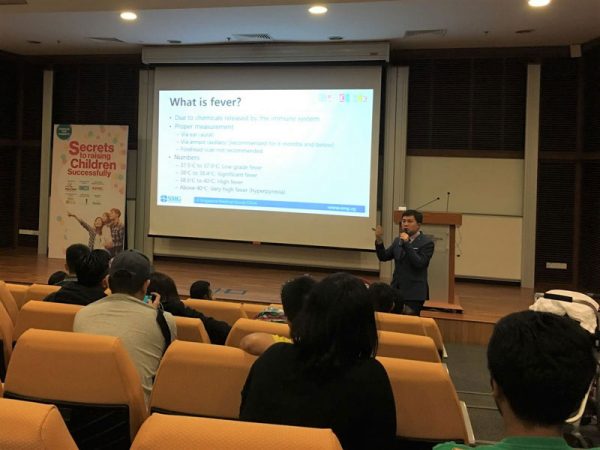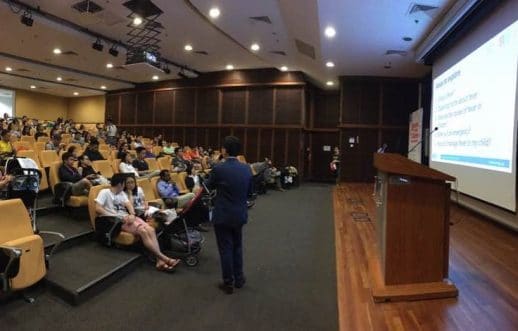Fever Management in Children (Nov 2018)
Contributed by: Kids Clinic

1. Fever causes brain damage
False. Fever alone does not cause brain damage. However, fever can cause febrile seizures/ fits in children who are prone to it (family history, previous similar episodes). These seizures can cause brain damage when prolonged (i.e. > 5 min).2. Fever causes internal organ damage
False. Fever alone does not cause internal organ damage. However, it is most important to establish the cause of the fever, as underlying conditions could have other implications.Apart from dispelling these common myths, Dr Dave also pointed out that fever comes in different grades:
- Low grade being 37.5°C to 37.9°C
- Significant fever being 38°C to 38.4°C
- High fever being 38.5°C to 40°C
- Very high fever being above 40°C
There could be various reasons why your child might be running a fever. It could be due to an infection (bacterial or viral), or it could be induced by a vaccination. Less commonly, fevers can be caused by Kawasaki disease, malignancies or autoimmune diseases.

Managing Fever with Medication
Dr Dave Ong then went into detail on common fever medications such as Panadol and Brufen, taking care to highlight the difference between the two. For example, Brufen is a non-steroidal anti-inflammatory drug, and has the possibility of irritating the child’s stomach. Hence it is advised to be taken after or with food. He also shared on the various formulations of each medication, the oral and suppository form (inserted into the child’s anus), as well as when each is being used.When is a Fever an Emergency?
While some parents manage their child’s fever at home without seeing a doctor, Dr Ong highlighted certain situations where parents should bring their child to see a paediatrician during a fever episode. This includes:- Seizures/fits
- Drowsiness (unable to wake up) or lethargy, even when fever comes down
- Breathlessness, turns blue
- Poor colour, appears pale
- Chest pain or sensation of abnormal heart beat
- Persistent/severe vomiting or abdominal pain
- Easy bruising or bleeding
- Bruise-like rashes appearing over limbs/body
- Poor feeding, reduced urine output
- Inconsolable crying
- Babies 3 months and below, with temp 38°C and above
For such episodes, it is important for parents to seek care as soon as possible.

This sharing session generated a lively Q&A session between Dr Dave and the parents subsequently. We hoped parents at the event had benefited from the tips to care for their child better in future.
About Author
This article is written by Dr Dave Ong, who completed his MBBS in the National University of Singapore (NUS) in 2009. He received his post-graduate specialist training in Paediatric Medicine at the National University Health System (NUHS) and was awarded the combined Master of Medicine (Paediatric Medicine) and Membership of Royal College of Paediatrics and Child Health (MRCPCH, United Kingdom) in 2014. Dr Ong is competent in paediatric and neonatal resuscitations for acute emergencies and has a special interest in respiratory, ear-nose-throat (ENT) and skin conditions.
Kids Clinic @ Punggol
681 Punggol Drive #03-11 Oasis Terraces Singapore 820681
Tel: (65) 6817 8885
Tags:
- Parenting journey


